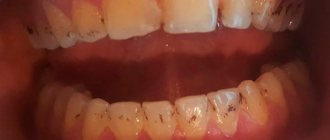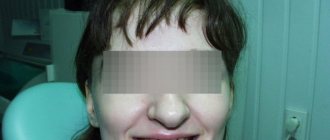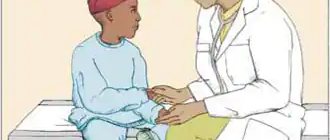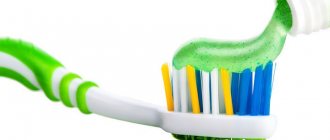- Published by: Laima Jansons
Loss of taste is a disease that is accompanied by disruption of the taste buds . It can be short-term - after eating too hot or cold food, or long-term, and this already signals problems with internal organs:
- ageusia is a pathological process accompanied by a complete loss of taste perception ;
- hypogeusia is a disease in which there is a partial loss of taste ;
- Dysgeusia is a pathology that is characterized by distortion of taste sensations and changes in perception.
Main symptoms of coronavirus
There are six main signs of coronavirus that can be identified without seeing a doctor.
- In the first days of SARS-CoV-2 disease, 85% of those infected have a fever, reaching 37.2 degrees. In some cases it turns into intense heat. Symptoms without fever are rare.
- About 75% of patients develop a dry cough, sometimes with sputum. Experts note that you should not immediately get rid of the symptom with the help of medications - this may complicate the separation of sputum.
- A significant proportion of coronavirus patients report loss of smell and taste. In some cases they disappear, in others they seem to mix, causing loss of appetite.
- Sore throat, muscle and head pain are common symptoms of coronavirus. The headache begins to hurt in the first days, and other signs of the virus appear gradually.
- One of the most common symptoms of COVID-19 is a runny nose. However, its appearance should be treated with caution: a stuffy nose may indicate a simple ARVI.
- Only 5% of those infected had diarrhea as a symptom of coronavirus. Gastrointestinal disorders have been noticed not only in adults, but also in children - in their case, coronavirus may be accompanied by vomiting.
Despite the fact that there is an opinion in society that coronavirus progresses differently in men and women, experts say: both sexes suffer the disease equally, and there are no specific signs for each of them. The risk of infection and the course of the disease depend on the characteristics of the body and the presence of chronic diseases.
Stopnarcotics.ru :: How can you tell if a person is consuming salt?
Salt ranks first among the products that we take in our daily diet. After all, it not only improves the taste of the dish, but also has functional responsibilities in the functioning of the human body. Salt contains sodium and potassium, which regulate the water balance in our body.
Therefore, we need salt to live normally. Historically, salt extraction was not an easy task. And the less it was, the more the desire to get it increased. Nowadays, finding salt does not take much effort. It is available in sufficient quantities on store shelves.
And people began to consume it in large quantities, approximately 3400 mg daily.
Causes of cravings for salty foods
- Reasons why you crave a lot of salt
- Conditions that influence the desire to consume salt
The American Heart Association recommends no more than a teaspoon of salt per day for adults. This is equal to 1500-2400 mg. If your craving for salt increases, this may indicate illness.
Subscribe to our INSTAGRAM account!
Reasons why you crave a lot of salt
We often hear one phrase: salt is white death. After all, consuming the product in large quantities can be fatal. And its deficiency leads to a malfunction of the body. After all, in addition to water balance, salt controls muscles. Salt cravings can be signs of illness. Do not ignore the fact if your dosage of this product suddenly increases.
There is not enough water in the human body (dehydration)
For normal functioning of the body, you need to have a certain level of fluid. If this level drops below healthy levels, then you have a craving for salt. At the same time, you are consuming more and more different types of liquid.
Subscribe to our Yandex Zen channel!
There are other symptoms of dehydration besides craving salt: clammy and cold skin; feeling dizzy; suffer from headaches and constant thirst; small amount of urine output; mood swings; rapid heartbeat and muscle spasms.
2. Electrolyte imbalance
With the supply of fluid, essential minerals enter the body. With their help, the body functions normally. Sodium is one of the minerals found in salt.
If the amount of minerals or electrolytes, as they are also called, is not balanced, then the following symptoms will appear: headache; constant nausea and vomiting; feel constant fatigue and lack of strength; suffer from sudden mood swings; confusion that manifests itself in small things; seizures.
3. Addison's disease
The adrenal glands produce hormones without which a person cannot survive. The percentage of patients with Addison's disease is very small, because it is a rare disease. It leads to a decrease in the amount of hormones produced by the human adrenal glands .
People suffering from this disease feel a craving for salt and experience the following symptoms: lack of energy and severe fatigue; pale skin color and stickiness; reduced blood pressure; lack of appetite and weight loss; diarrhea that lasts a long time; the appearance of dark spots on the face; the appearance of wounds on the inside of the cheek.
Body tension
The adrenal glands release cortisol. This hormone is responsible for regulating blood pressure and responding to stress. Studies have shown that people who have high sodium levels release less cortisol when stressed. And the desire for salt may be one of the ways to overcome stress.
Appearances of Barter syndrome
Patients with symptoms of Barter's syndrome suffer from sodium deficiency. After all, sodium that enters the body with food cannot be reabsorbed. It comes out with urine.
These kidney diseases are inherited at birth and symptoms appear at a very early age. They include: small human mass; low pressure; seizures and muscle weakness; feeling the need to urinate frequently; the presence of kidney stones.
Women's pregnancy
Symptoms of early pregnancy in women include vomiting and diarrhea. This may cause dehydration. And when there is not enough fluid, the body will need minerals to cope with the imbalance. They are found in salt.
PMS (premenstrual syndrome)
Before critical days, women experience a number of symptoms. These include sudden mood swings, insomnia, and increased appetite. The desire arises to eat something salty or sweet at the same time. But not every woman experiences PMS symptoms.
The desire for salt is not caused by our simple whim . As it turned out, this is completely wrong. After all, behind every great desire there may be a hidden illness or lack of nutrients. Learn to live in harmony with your body, and you will have a healthy old age. Published by econet.ru.
on the topic of the article here
Source: https://vita-dent.su/zuby/ne-chuvstvuyu-sol-2.html
Smell and taste during coronavirus
After the coronavirus pandemic declared by WHO, doctors from different countries began to create a database of its characteristic clinical manifestations. It is constantly updated with new symptoms - conjunctivitis, loss of taste, sore throat. Increasingly, patients with COVID-19 are diagnosed with anosmia, or a complete loss of sensitivity to smells. This sign of the introduction of coronaviruses into the respiratory tract has recently served as a diagnostic criterion for a dangerous respiratory infection. An interesting fact is that not only those who were seriously ill lost the ability to distinguish odors. Doctors in the UK have reported a rapidly growing number of cases in which loss of smell is the only symptom of an infected person. It was because of the mild course of the infection that they were not diagnosed.
They did not contact the doctor with the question: I can’t smell or taste coronavirus, but at the same time these symptoms were observed. However, this symptom is nonspecific and is characteristic of many acute respiratory infections and influenza. Therefore, doctors have an idea about the mechanisms of development of anosmia.
During the pandemic, the reasons for the loss of smell in coronavirus patients have been little studied.
And also the more rare hyposmia - a decrease in the sense of smell in relation to all or only some odors, which can be bilateral or unilateral. Doctors suggest that the reason for the lack of smell and taste during coronavirus is the penetration of coronaviruses into the mucous membranes of the nasal passages. They begin to invade cells, deceiving the receptors located on their surface by imitating fake molecules. During the replication process, pathogens release toxic substances into the environment. Under their influence, the mucous membranes become inflamed with the formation of edema. This prevents odors from entering cells that are sensitive to them.
Dysgeusia (distortion of taste) and the causes of its occurrence – Dentistry on Vosstaniya
The synthetic drug “salt” appeared not so long ago. This happened literally 7-10 years ago. Previously, little was known about it, but now it is becoming more and more popular. And all this for the reason that it is not difficult to get it.
And in preparing such a narcotic substance, you don’t need any special skill either! It can easily be produced in a small factory, without special equipment. The main thing is to know the composition and be able to distribute it! In the USA, Canada, etc., there are absolutely no problems with this! In Russia, Ukraine and Belarus this is more difficult.
Due to the existence of an article in the Criminal Code, this is treated more carefully, but even this does not prevent the distribution of narcotic substances on the Internet!
In addition, this drug began to be sold under the guise of bath salts, clothing powder or fertilizer! If a person knows where to get a product, it will not be difficult for him to purchase it! In one of the cities of Russia, this drug began to be mixed into “nasvay”. Nasvay itself does not pose much harm or danger. But in a combination of two substances, no one knows how the human body will react.
The synthetic drug “salt” sells well not only among “newbies”, but also among experienced drug addicts.
It is very easy for those who are accustomed to heroin, cocaine and other drugs to switch to a synthetic drug.
Despite the fact that the dose is much less, withdrawal from hard drugs stops, as the person becomes fixated only on salt. And getting it is much easier and cheaper.
Why salt cravings occur: 7 reasons
Salt ranks first among the products that we take in our daily diet. After all, it not only improves the taste of the dish, but also has functional responsibilities in the functioning of the human body. Salt contains sodium and potassium, which regulate the water balance in our body.
Therefore, we need salt to live normally. Historically, salt extraction was not an easy task. And the less it was, the more the desire to get it increased. Nowadays, finding salt does not take much effort. It is available in sufficient quantities on store shelves.
And people began to consume it in large quantities, approximately 3400 mg daily.
Does coronavirus cause taste loss?
Respiratory infections have characteristic symptoms: cough, fever, nasal congestion. But the coronavirus, which has spread across the planet relatively recently, has additional signs that may seem unusual. Most people infected with COVID-19 complain of dullness of smell or its complete loss, as well as distortion of taste. The main reasons why many people lose their sense of smell and taste during coronavirus infection:
- In the first days of the disease, coronavirus affects the mucous membranes of the nose and pharynx. For this reason, the mucous membrane in them swells. At the same time, the olfactory and taste receptors are affected.
- In rare cases, the cause may be damage to the area of the brain that is responsible for the perception of taste and smell.
- The sense of smell may disappear in cases where the nerve endings are damaged, or there is dysfunction of nerve impulses, which is transient.
What influences the timing of symptom onset:
- Form of the disease. If we have to talk about a hidden flow, the countdown can be carried out from the period of confirmation of infection through a test.
- Individual characteristics of the immune system.
The symptom in question may appear suddenly. But patients also note cases when problems with taste and smell during coronavirus increase gradually. If there are no associated complications, including nasal congestion, the sense of smell can be restored within 1 to 2 weeks. If a complicated course was observed, then it may take longer to return to function.
Loss of taste in food (lack of taste for sweet, salty)
Loss of taste is a disease that is accompanied by disruption of the taste buds . It can be short-term - after eating too hot or cold food, or long-term, and this already signals problems with internal organs:
- ageusia is a pathological process accompanied by a complete loss of taste perception ;
- hypogeusia - a disease in which there is a partial loss of taste ;
- Dysgeusia is a pathology that is characterized by distortion of taste sensations and changes in perception.
Causes of complete loss of taste
The main factor in the complete loss of taste for sweetness or salt is long-term depressive and stressful conditions . Other ageusia factors include:
- infectious lesions of the nervous system pathways;
- inflammation of the lingual nerve or chorda tympani, accompanied by neuritis of the facial nerve;
- damage to the back of the tongue, which leads to neuritis of the glossopharyngeal nerve;
- pathologies of the medulla oblongata;
- inflammation of the vagus nerve.
! In the human body there are significantly more bitter receptors than others. This is due to the fact that most toxic substances have a bitter and pungent taste.
Diseases in which there is a complete or partial loss of taste
- Neuritis of the facial nerve or inflammatory damage to the nerve that is responsible for facial muscles. In addition to loss of taste, the patient experiences weakening of the facial muscles and asymmetry . The patient cannot smile or frown, and the process of chewing food is difficult.
- Facial nerve paresis or paralysis is a pathology of the nervous system that occurs due to an infection of the upper respiratory tract. The pathology is accompanied by impaired taste perception and facial asymmetry .
- Acute viral hepatitis is an infectious lesion of the liver, as a result of which taste perception is impaired . The main symptoms of the disease are jaundice, diarrhea, vomiting and loss of appetite .
- Sjögren's syndrome is an autoimmune disorder that is accompanied by a decrease in secretion production from the salivary and lacrimal glands. Dryness in the nasopharynx, burning in the eyes and loss of taste are symptoms of this disease.
- ARVI - viral damage to the taste buds, damage to the nerve endings of the receptors responsible for taste, nasal congestion contribute to partial loss of taste . Normalization of taste perception is achieved after suppression of the virus in the body.
Causes of partial loss of taste
Conventionally, the tongue can be divided into four parts, each of which is responsible for the perception of a certain taste.
Photo 1: The tip of the tongue is responsible for the sensation of sweet taste, the middle - for salty, the back of the tongue perceives bitter, and the edges of the tongue are responsible for sour sensations. Impaired perception is associated with various pathological processes in different parts of the tongue. Source: flickr (“R☼Wεnα”).
Sweet taste is lost
Loss of sweet taste can occur due to an inflammatory process at the tip of the tongue, a burn, or injury to this area. Disturbances in the papillae of the tongue, pathologies of nerve impulses to the brain are also factors in reducing the sensation of sweetness.
If you don't feel the salty taste
A weakening of the sensation of salty taste or its complete loss indicates injury to the middle part of the tongue. Bacterial and fungal infections (candidiasis) affect the tissues where taste buds are located .
Loss of salty taste perception is often caused by heavy smoking , which causes the taste buds to atrophy. Malignant neoplasms in the brain provoke ageusia or hypogeusia of salty taste, since the brain cannot recognize the incoming impulse.
Loss of sweet and salty taste
There are also several reasons that provoke the loss of sweet and salty taste at the same time:
- pathologies of the thyroid gland;
- long-term use of broad-spectrum antibiotics, antihistamines, anticonvulsants;
- hypovitaminosis (especially vitamin B12);
- lack of zinc in the body.
Partial loss of taste (sweet or salty) is often noted in patients suffering from epileptic seizures . Also common factors of hypogeusia are:
- changes in the deep parts of the temporal lobe of the brain, which is accompanied by mental disorders and schizophrenia;
- neuritis of the fifth or seventh pair of cranial nerves;
- damage to the brain stem.
How to treat loss of taste
To quickly restore your sense of taste, you should consult a specialist to diagnose the cause of the disease. Depending on the factor contributing to the loss of taste, appropriate treatment is prescribed:
- Dryness in the mouth, accompanied by insufficient secretion of saliva, will be eliminated by drugs that help moisturize the oral mucosa. For this purpose, artificial saliva preparations are prescribed - Salivart, Mouth Kote.
- In addition to medications, you can use mouth rinses . They not only moisturize the mucous membrane, but also have an antibacterial effect.
- If the loss of taste is associated with fungal infections of the mouth , drugs for candidiasis are prescribed - Clotrimazole solution, Decamine ointment.
- When diagnosing a lack of Zinc and vitamin B12 in the body, Zincteral, Berocca, and intramuscular injections of cyanocobalamin are prescribed. Additionally, multivitamin complexes may be prescribed.
- restore taste perception . The leaves of peppermint, lemon balm and motherwort have a sedative effect and eliminate the main cause of pathology - neurosis. When the oral cavity is infected with a bacterial or fungal nature, rinses made from chamomile flowers, calendula and oak bark are used.
- To increase the spiciness, you need to add spices to your food such as cloves, cinnamon, mustard and lemon.
Photo 2: Regular cleaning of the surface of the tongue reduces the risk of loss of taste. Source: flickr (Gabriella Yazickr).
Homeopathic treatment for loss of taste
Homeopathic treatment differs from traditional treatment by increased efficiency and minimal negative impact on the human body . The homeopathic doctor individually selects the name of the drug, dosage and method of use.
Drugs Purpose Additional symptoms
| Hepar sulfur | Returns taste sensations. | Nasal discharge (including putrefactive discharge), sneezing. |
| Hyoscyamus | Lack of taste due to paralysis. | Accompanied by nervous exhaustion, increased weakness, and thirst. |
| Sepia | With a complete absence of taste and smell. | The patient is not comfortable in a warm room, there is increased dryness of the mucous membranes, and a herpes rash around the nose. |
| Silicea | In the absence of smell and taste. | Abscess, itching on the tip of the nose, weakened immunity, pale skin tone. |
Source: https://www.gomeo-patiya.ru/simptomy/prichiny-poteri-vkusa-pishi-248.html
Causes of loss of smell and taste
Let's try to answer in detail the question of why the sense of smell and taste disappears during coronavirus. Suggested answers to this question vary. Some experts say that the reason lies in the swelling of the nasal and pharyngeal mucosa. The relationship between the loss of smell and taste is also indicated, since in the absence of sensitivity to odors, according to scientists, a person will not be able to sense taste normally. Harvard researchers decipher the reason in more detail, pointing to damage to the olfactory nerve cells due to coronavirus.
This can serve as a trigger for partial or complete loss of smell for a certain period.
Previously, there was a version about the cytotoxic effect of coronavirus on nerve fibers and individual cells - neurons. At the same time, the ability to quickly restore olfactory function forced us to refute this theory. According to neurologists from Harvard, the whole point is damage to the so-called auxiliary cells surrounding neurons sensitive to smells and tastes.
They contain a specific protein that the coronavirus uses when entering cells and applying its cytotoxic effect. It turns out that, first of all, the pathogen contributes to the dysfunction of auxiliary cells, which triggers a malfunction of the olfactory nerves.
On what day does the taste disappear?
The taste may disappear in the first days after infection, but more often it is lost within 6-7 days. This condition is called ageusia in medicine, and in the case of preserved but altered taste - dysgeusia (metallic, sour taste in the mouth). Doctors answer the question of whether taste is lost due to coronavirus. With coronavirus infection, there is no change in taste, and the immediate cause of the disorder is anosmia - loss of smell. There are several explanations for the loss of smell:
- swelling of the nasal mucosa;
- active reproduction of viral particles - virions - in the nasal cavity with damage to the olfactory receptors. It is assumed that these lesions are a consequence of the destruction of small capillaries;
- the infection, along with the bloodstream or through the ethmoid bone separating the nasal cavity from the cranial cavity, penetrated into the brain with damage to the olfactory centers.
Complete or partial loss of taste is observed in approximately 33% of patients. A number of experts suggest that in reality this figure is higher, it’s just that many do not go to doctors with such a symptom. Especially if you feel normal, nothing hurts, and the temperature does not rise. Doctors at the American San Diego clinic believe that the disappearance of taste usually indicates a mild infection. The patient usually does not require hospitalization. According to the results of a study based on the medical records of 169 people, 128 of them suffered from anosmia.
And only 12 later, artificial ventilation was required due to respiratory failure. On what day during coronavirus the taste disappears directly depends on the severity of the disease. Scientists justified this by the fact that Sars-CoV-2 got to the nasal mucosa, where an active reaction of local immunity began. In other words, the immune system quickly dealt with the infection and prevented it from spreading throughout the body.
How long does anosmia last?
The ability to recognize odors disappears already in the early stages of coronavirus. How quickly it returns is an individual feature of the course of the disease. In mild cases, the recovery processes are more intense, and the epithelium of the nasal mucosa can again perform its functions. How many days can you not smell during coronavirus? The minimum amount of time for the sense of smell to appear again after its loss is from 3 to 5 days. At first, bright odors become noticeable, and only then the sense of smell returns to its full extent. With moderate severity of damage to the olfactory epithelium, recovery time can range from 14 to 30 days or more. The speed of recovery if the sense of smell is lost due to coronavirus may vary depending on the following factors:
- age of the patient - in older people, cellular regeneration processes occur more slowly;
- severity of the disease - all functions quickly return in mild cases of coronavirus, even if they are temporarily impaired;
- the presence of injuries, damage, burns of the nasal mucosa;
- conditions and diseases that are accompanied by temporary or chronic immunodeficiencies.
If the coronavirus infection exclusively affects the nasal mucosa, the sense of smell may disappear for several days. During this time, the cells regenerate, and the patient again acquires the ability to smell.
I don't feel salt in food reasons
Loss of taste is a disease that is accompanied by disruption of the taste buds . It can be short-term - after eating too hot or cold food, or long-term, and this already signals problems with internal organs:
- ageusia is a pathological process accompanied by a complete loss of taste perception ;
- hypogeusia - a disease in which there is a partial loss of taste ;
- Dysgeusia is a pathology that is characterized by distortion of taste sensations and changes in perception.
How to restore taste and smell?
Anosmia causes a lot of discomfort. In most cases, after recovery, the ability to clearly distinguish aromas is restored. And it doesn't require any additional effort. If, 1-1.5 weeks after the disappearance of all symptoms of ARVI and a negative test for coronavirus, anosmia persists, you should definitely inform your doctor about it. In some cases, additional examinations are necessary. Most patients are interested in the question of how to restore taste and smell during coronavirus.
Doctors believe that rinsing the nasal cavity with ordinary saline solution or special preparations based on salt and water can help patients. This helps clear the nose and relieve swelling. Note! If the swelling is severe, you should try vasoconstrictor drugs or hormonal-based drugs. But you can use them only after consulting your doctor.
When the smell and taste returns after coronavirus directly depends on the severity of the coronavirus infection.
In more complex cases, when people lose their sense of smell due to damage to certain areas of the brain, the help of a neurologist cannot be avoided. In such situations, rehabilitation can be quite lengthy. Doctors prescribe medications and advise you to do exercises that help you return to the world of smells. For example, you can sniff strong aromas more often, trying to breathe in the air deeply.
Is anosmia a coronavirus?
Asymptomatic COVID-19 is the very reason why doctors demand, appeal, even conjure (yes, one doctor said so in an interview) to wear masks. Many people irritably ask why do this, I’m not sick. Let's hope that you don't get sick, but SARS-CoV-2 may well end up in your breath. Increasingly, the question comes up on forums: I can’t smell anything – is it coronavirus or not? However, in fact, there is a symptom that can serve as a signal “I’m not sick.” Lack of coffee aroma. Food. Spirits. That is, when there is no runny nose, but you don’t feel any smell.
Before coronavirus, this was interpreted as a sign of one of two problems: an inflammatory process or a neurological disease.
It is worth mentioning that anosmia (the scientific name for loss of smell) occurs with traumatic brain injuries, tumors, Parkinson's and Alzheimer's diseases. Now, judging by the observations of Dr. Koshelev, for one such patient there are approximately thirty other - suspicious - cases.
It has been scientifically established that coronavirus affects the central nervous system, penetrating into it through the olfactory receptors. In addition, it is in the epithelium that most of the special protein structures have been identified, to which coronavirus particles “cling” with their spikes. Polish scientists also noted that during an experiment on mice, especially many of these structures were in the noses of older animals. According to the researchers, this explains why the disease more often affects older people.
Or maybe it's not Covid?
Loss of the ability to taste and smell is not always a symptom of coronavirus. It can be caused by tumors in the nose, and the tumor sometimes grows directly from the olfactory nerves. Lack of taste often occurs during radiotherapy for cancer of the head and paranasal sinuses.
In addition, this sign may indicate the development of pathologies such as hypertension, Parkinson's and Alzheimer's disease, some types of senile dementia, multiple sclerosis, and also accompany obesity.
Smell in the nose due to coronavirus
Several weeks and even months after suffering from coronavirus, some people report complaints of terrible odor distortions: their coffee now smells like slop, and their own sweat smells like onions. There have been cases of ammonia smell in the nose due to coronavirus. Evidence that COVID-19 causes a temporary loss of smell in some patients appeared several months ago. Primary research and complaint surveys have helped identify this common symptom -; in some patients it even turned out to be the only manifestation of the new coronavirus.
But in the last few months, an unusual symptom has become increasingly mentioned in communities, chats and forums - a strong distortion of odors several months after recovery. Many people note that it is very difficult to characterize new smells: they are not at all similar to the usual, familiar ones. But all those suffering from an incomprehensible symptom agree on one thing: these smells certainly cannot be called pleasant. The intensity of discomfort varies: some simply had to give up coffee drinks and change toothpaste, while others have practically been unable to eat for a month.
Recovery after illness
What to do if you lose taste and smell due to coronavirus, how to recover. Sometimes there are recommendations to train taste buds so that they regain the ability to feel. Products with fairly strong smells and tastes, such as onions, mustard, coffee, horseradish, are suitable for this. But artificial sources, such as synthetic oils and perfumes, are best avoided.
Alternating foods with different flavors, for example, salty and sweet, will help you recover faster, with the exception of dishes with artificial preservatives and monosodium glutamate. Flavors should be natural.
British scientists, after a study, found that swelling of soft tissues and mucus secretion can block the sense of smell against the background of COVID-19.
Apart from the measures indicated above, no specific treatment is required. In some cases, after a detailed study, the need for medications and physical therapy is discovered. Then breathing practices can be beneficial. If swelling of the mucous membrane persists, you should use medications that can eliminate inflammation in the nasopharynx, such as Chlorhexidine, Sanorin.
Irrigation of the nasal passages and gargling have a beneficial effect. For this purpose, disinfectant compounds are used. Sea water is also highly recommended. It fights swelling of the mucous membrane and removes virus waste products from its surface. According to data obtained from around the world, about 68% of patients complained of loss of smell, while problems with taste were reported by only 17% of patients.
No smell, no taste
It is important to note that loss of taste during coronavirus is usually observed simultaneously with the sense of smell. While eating, a person feels both smell and taste - these sensations are practically inseparable from each other. If you pinch your nose while eating, the taste of food will change significantly. Only the general characteristics of what is on the plate will remain: whether it is bitter, sweet, sour or salty.
In the vast majority of cases, a person who has no sense of taste actually suffers from a loss of smell. The main part of the taste properties of products is due to the human ability to smell.
The tongue has the ability to recognize salty, sweet, bitter and spicy. All other flavors are provided by the olfactory function. For example, it is the aroma of these products that helps us distinguish ice cream from yogurt, chocolate and candies.
And therefore, it is quite difficult to determine the taste of food when the nose is stuffy due to a cold, after being in a cold room, or due to allergies. A similar reaction also often occurs due to the use of vasoconstrictor nasal drops.
Impaired sense of smell and taste is a very common phenomenon, affecting approximately 2 million people annually. But an isolated disorder of taste alone is quite rare.
Smell training
Nothing complicated - you just need to try to inhale and guess the smells, even if it’s not very successful yet. Just don’t need to snort ammonia or anything else aggressive for training. A more odorous substance when inhaled will not restore the sense of smell, but it may cause harm. You can use essential oils at home. Take 3-4 different essential oils, put a couple of drops on tissues and smell each one.
That is, the smell should be already familiar, but not yet memorized, so your favorite perfume will not work.
Try to remember the smells and what they belong to - lemon, fir or something else. When you can at least slightly distinguish one smell from another, try mixing the samples so that you don’t know where everything is, and determine what exactly this or that napkin smells like. In addition, perfume is a multi-component aroma, it is too difficult for the sense of smell, so the doctor recommends using essential oils. They are sold in pharmacies and some cosmetics stores.
Under no circumstances should you sniff the essential oil directly from the bottle, or even try to drip it into your nose. The most important thing: do not pour or drip anything that comes to hand into your nose. There is no need to prepare solutions yourself, apply oils or use antiseptics - this does not help, but it can make things worse. A lot of patients who have had COVID-19 are beginning to try to regain their sense of smell by simply washing their nose with everything, including aggressive antiseptics, which are not intended for the nasal mucosa at all - they are used to treat inflammatory pathology of the pharynx. The result is a burn of the nasal mucosa. It is very easy to burn. If the loss of smell is very concerning, you can consult a specialized doctor after recovering from COVID-19. You will need an otorhinolaryngologist, also known as an ENT specialist.
Are there any treatments
If Covid-19 infection results in loss of taste, there are no specific treatment methods. The symptom will go away on its own when the body defeats the disease. In case of severe nasal congestion, vasoconstrictor drops can be used, but not more than 5 days, since they themselves can cause anosmia.
To get rid of dryness and burning in the nose, rinsing with saline solution is recommended. It is sold in pharmacies or prepared at home. For a liter of boiled water, take 1 tbsp. l. salt - table or sea salt.
After its dissolution, the product is filtered through gauze folded in several layers and poured into a convenient container. It is most convenient to use a bottle with a spray nozzle. The nasal passages are irrigated with saline or instilled every 1-2 hours.
It is worth noting that even if loss of taste is the only symptom of coronavirus, it is necessary to comply with quarantine and get tested for Covid-19. If the result is positive, a person can infect others, as he is a carrier of the infection.









